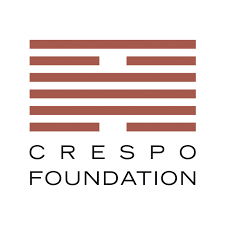Ali Mohammadi Kiyan (1976) is a film director, screenwriter and editor from Afghanistan, now an Artists at Risk (AR)-Resident at Moosdorf Korrektiv e.V. in Berlin, Germany. He has made 10 short and long documentary films.
Kiyan studied Cinematic Direction at Tehran University and later founded the Academy of Art and Cinematic Education, a non-governmental art institution, of which he was Director from its inception in 2002 until 2021. The Academy of Art and Cinematic Education has produced dozens of documentaries, as well as TV programmes, series and teasers for film festivals and has executed many printing and advertising projects (that help fund the academy). It has also hosted artistic and social conferences, film screenings and filmmaking workshops. Of the academy’s many projects, the most important include the implementation of seven filmmaking training courses (each consisting of two 4.5-month-long semesters); the production of a 20-episode TV series on human rights issues, funded by the Afghanistan Human Rights Independent Commission; and the production of 100 advertising billboards on the topic of women installed in different cities across Afghanistan in a USAID project.
Over the past 20 years, Kiyan has planned and managed dozens of art exhibitions (painting, calligraphy, photography) and supervised and managed more than fifty print and advertising projects. He was also a member of the Policy Board of the Art Committee of the (former) Chief Executive Office of the Islamic Republic of Afghanistan.
Kiyan has worked on the jury at film festivals, such as the Tolo TV Film Festival, the Student Film Festival, the Goethe Short Film Festival, the Herat International Women’s Film Festival, the Bamyan Film festival, the Lajavard Film Festival and others.
Together with the Academy of Art and Cinematic Education and his wife, Soghra Setayesh, also a resident at AR-Moosdorf Korrektiv e.V., Kiyan organised the Mehrgan International Film Festival in Kabul, which ran for five years until it was derailed first by Covid-19 and then by the fall of the Afghan government. The festival was aimed at improving visual literacy in society as well as preparing the cultural and social field for the creation of valuable artwork. As an important artistic event in Afghan society, the festival played a key role in encouraging young filmmakers.
Kiyan’s current film project, Hidden, a long documentary, is in post-production. A few other recent examples of his work include the long documentary Crossing the Dust, of which he was both writer and director, released in 2011, and Democracy’s Drum, which appeared in 2007 and which Kiyan directed and edited. He also directed and edited five episodes of The Roof of the World from 2004, among many other projects.
After escaping Afghanistan, Ali Kiyan has been an Artists at Risk (AR)-Resident at the AR-Moosdorf Korrektiv e.V. Residency in Berlin, Germany, which is co–funded by the Crespo Foundation and co-organised by Perpetuum Mobile (PM) as part of the AR-Network. The AR-Network is coordinated by the AR-Secretariat, which is funded by the Swedish Arts Council’s Programme for Artistic Freedom and the Ministry of Foreign Affairs of Finland’s Centre for Peace Mediation.
